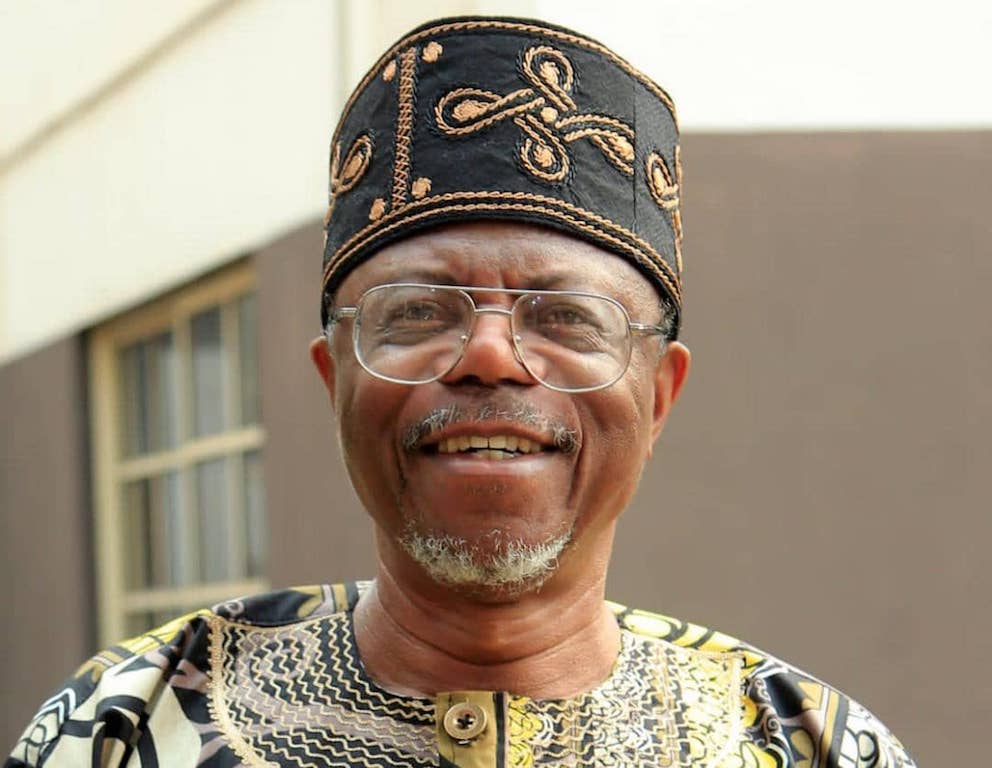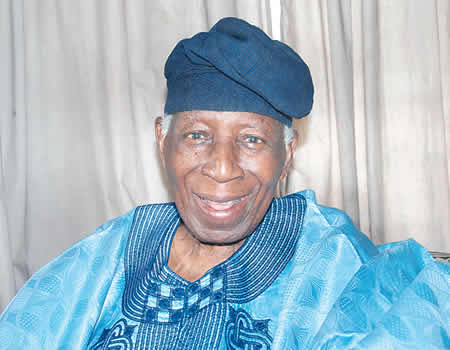By Toyin Falola
The ideological foregrounding of the University of Lagos was heralded as a discerning response to the charted trajectories of the City of Lagos, Nigeria’s federal capital, the Lagos State, West Africa, and Africa. Tracing back through time, within which Lagos has grown, and the resounding projection of an encouraging future for the city, the University of Lagos (UNILAG) has accompanied it and exhibited a perfect symbiotic partnership of town and gown.
Lagos State unarguably boasts as one of the largest economies in Africa, drawing claims with nations and exerting its hold as one of Nigeria’s reverberating strongholds for idea formation, innovative development, and evidenced growth. Achieving this height of reputation, UNILAG serves as a pavilion for injecting nodes of ideations, practical steps, and enlightenment for the paths of the city.
Truly, the city of Lagos has been on a direct receiving end of the continuous radiating impact of excellence since the inception of UNILAG, as the post-colonial history and development of Lagos reflect the influence of the academic and ideological strength and accomplishment of a great university. However, the dreams and conceptions of UNILAG are far different from just a city-bound endeavor but delineated by the pool of necessities that were almost burying the new nation. So, a terse delineation of what defines UNILAG is that it has been a force for resources and ideological directions for the enactment of the blueprint of the nation and Lagos simultaneously.
In this light, the history of UNILAG aligns with the independence history of the nation and the handing over of all sectors into the hands of Nigerians. It means the gearing of the nation, from the then seat of power, Lagos, would be in the hands of Nigerians. It also implied that the nation would need more experts and resources to fit into the scheme of a blooming nation and economy. So, the conception of the University was a response to the nation’s social, economic, professional, and political needs. The anticipation was for it to blaze the trails to establish strong grounds for national development.
These needs stemmed from the fact that the nation, at that time, did not have enough institutions that would serve as conduits of resources and reservoirs of manpower to create a national foundation for an economy received from the colonial government. Recognizing this reality, the Ashby Commission recommended the creation of the University of Lagos to offer courses in Business Administration, Commerce, Higher Management Studies, and Economics on day and evening schooling plans to capture both the working class and the non-working class. So, it became apparent that for the new nation to excel, it must draw from the University.
Therefore, I believe that the mission of the University became bifurcated: first, to respond to the immediate needs of society, and second, to contribute immensely to the epistemological and cerebral composition and compounding of the nation and city. Both assignments are focal points of development, and if one would define excellence from its cradles of achieving determined and set out goals, the yardstick for ascertainment and determination of whether the University could be delineated as a centre for excellence rests solely on its ability to meet those bifurcated aspirations.
On the first wing of the assignment set at its inception, UNILAG has become a hub for propelling individuals into innovative and developmental realities, compelling informed drives for commercial orientations, creativities, and crystalized ideations. At independence, the business of Nigeria calculated towards nation-building could be said to be that of the business of development, need to strengthen its agencies and create a commercial front that would secure growth and the future of the nation. As expected, the University built men and women who could intellectually contribute to these dreams. With foundational knowledge in commerce and humanities-related disciplines at those early stages, the intellectual capacities of the nation were matching up with the Nigerian project at the time.
Lagos, being the home of UNILag, has also seen a direct contribution of the University to its growth over the years. Lagos has turned into a globally recognized hub for development, commerce, and innovation, with raw talents being displayed in all sectors. Lagos State boasts the fifth largest economy in Africa when ranked as a country. This feat came to be because of the long history of industrious and commercially oriented population.
To contribute to these specific commercial and innovative needs of both Nigeria and Lagos, UNILAG has since been widening its scope to embrace these realities. The curriculum of the University and the activities along the long lane of Nigerian history gave a platform for remodelling those ideas of growth and giving the right information that would allow for productive, innovative thinking. Today, the University can pride itself in being one of the foremost institutions that have diversified largely into research, innovation, and entrepreneurship and have made considerable success in that regard.
To prove the above, the successes of the students and their positions among others in the country and city serve as testaments and evidence to the gravitation of the attention of the University to innovation and entrepreneurship. Aside from being one of the best in Africa, Forbes recently ranked it as the third-best University for entrepreneurship in Africa, with the University of Cape Town and Makerere Universities as first and second. This feat is proof that UNILAG has been able to adjust to these commercial realities from both national and state fronts.
The relevance of the entrepreneurial contributions of UNILAG could be best appreciated in the importance of entrepreneurship that forms the basis of the Small and Medium-scale economy. Without mincing words, I would say that entrepreneurship and innovation are the two contemporary factors that the nation and continent need in abundance. The economy of Nigeria has become too volatile, and the domination of the market by big and already-established brands has been kicking out small-medium businesses. The Nigerian Bureau of Statistics states that Small and medium-scale economies in Nigeria are responsible for about 48 per cent of Nigeria’s GDP. In addition, they also account for about 84 per cent of the total workforce in the nation. SMEs also account for about 96 per cent of the total businesses in the country. I believe that the University has long seen the relevance of these sectors of the economy and has taken it upon itself to build small and medium-scale economies through the entrepreneurial development of the nation. So, one of the most important economic sectors of the nation draws strength and forecastable development from the excellence of UNILAG.
Aside from the commercial and innovative needs of the nation and city, in which the University has always served as a reservoir of appropriate proactive response by providing and building befitting human resources, its contribution to social needs transcends commerce and innovation. Another interesting contribution of UNILAG that many might not pay attention to is its contribution to the health and medical sectors of the nation. The world has faced health trying times, and in Nigeria, the outbreaks of the Ebola Virus and the COVID-19 pandemic were a big threat to the survival of the people. During the outbreak of the Ebola virus, Lagos was efficient in its response and the defence of the nation to ensure that it did not spread dangerously to the rest of the nation. So, Lagos took the front row, and UNILAG backed the endeavour. The research and professional activities of some of the products, like Dr. Ameyo Stella Adadevoh and employees of UNILAG, were instrumental in the success of the fight against the virus. A similar achievement was achieved during the COVID-19 pandemic, and UNILAG once again became an institutional hero in the fight.
The second wing of the assignment set at its inception, at least for every educational institution, is to achieve academic feats that set a standard for others to follow. The quality of research and contribution of the faculties of UNILAG to the epistemological body of the nation and Africa has been groundbreaking. One of the commendable approaches of the University is the establishment of the Research Management Office that ensures that topnotch research endeavours reflect global standards, social needs, multidisciplinary considerations, and Innovative approaches. Today, UNILAG ranks as one of the top five research institutions in the country, with cutting-edge progress and a deliberate focus on relevant results.
The pedagogical approaches of the University and its members of staff have shown result-oriented styles that help students grow through academic endeavors. The University is an academic fortress to about 60,000 students with diverse interests and aspirations. What is more important about the students is the quality of the thinking abilities and creativity of those whom I have interacted with. Not all universities in the world have students with such a huge diversity of interests, and still, all draw back to academic importance, making them relevant in national and continental discussions. It has been said and seen that UNILAG students take the bull by its horns and continue with the spirit of excellence. The current students and alumni have become relevant in every sector of Nigeria, including entertainment, commerce, academics, and sports.
One can see that what makes the University of Lagos a centre of excellence is not just the brilliance of its students and faculties or the qualities of research made, but its ability to grow with the needs of the nation and continent and provide a relevant response to it. To keep the custom, all hands must be on deck. The different challenges, including funds, facilities, and resources, must be taken as a national concern, and the Lagos State government must also recognize the need to give back to the institution that has given so much to its communities. Truly, Lagos was bound to grow, but the rate and trajectory of its growth might not have been this pronounced without the existence and contributions of UNILAG.
The nation anticipates high hopes for its future, and discourses and efforts are channelled to technological innovations and market-defining discoveries that would project and propel the nation among its counterparts. There is no future for Nigeria without Lagos in the picture, and as history has shown, there might not be such a future for Lagos if the University of Lagos is incapacitated from injecting its excellence. In essence, the University of Lagos is pivotal to the anticipated future of Nigeria and must be held not just as a treasury but as a bailout.
It is important for the alumni of UNILAG not to stray too far from it. It is an institution that needs all the help it can get to keep being that centre of excellence that everyone associates with it. In addition, the University itself must be ready to create a reasonable relationship and collaboration with the alumni body to promote inclusiveness.

 News7 years ago
News7 years ago
 Featured7 years ago
Featured7 years ago
 Boss Picks7 years ago
Boss Picks7 years ago
 Headline7 years ago
Headline7 years ago
 Headline6 years ago
Headline6 years ago
 Headline6 years ago
Headline6 years ago
 Headline7 years ago
Headline7 years ago
 Headline6 years ago
Headline6 years ago















